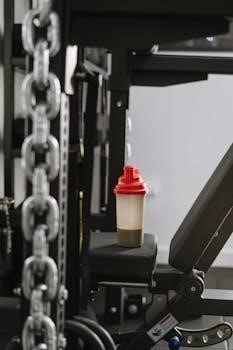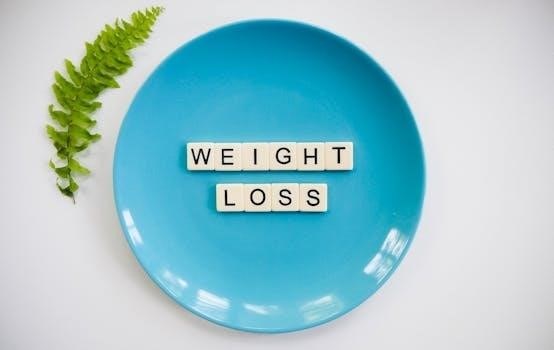Understanding Grip Balls (Balles de Préhension) & PDF Tutorials
Tutos, like those from Marylene Idees in August 2018, offer patterns for Montessori-style grip balls; readily available PDFs guide crafters through construction.
What is a Grip Ball (Balle de Préhension)?
A grip ball, or balle de préhension, is a sensory and developmental toy designed to be easily grasped by small hands; These balls are typically soft, often handmade, and feature a slightly irregular shape, intentionally avoiding perfect sphericity to encourage a baby’s grasping reflex. They are a cornerstone of the Montessori approach, promoting fine motor skill development and hand-eye coordination.
Many resources, including tutos and PDF patterns – like those found on sites such as Marylene Idees – provide instructions for creating these balls at home. These PDF guides, often referred to as “tuto balle de préhension PDF”, detail the materials and steps needed for construction, allowing parents and educators to customize the balls to suit a child’s needs and preferences. The focus is on tactile exploration and building strength.
The Montessori Approach to Grip Balls
Within the Montessori method, grip balls – or balles de préhension – are introduced to infants as early as three months old, supporting their natural development. The emphasis isn’t on a ‘perfect’ toy, but one that encourages exploration and strengthens the grasp. The irregular shape challenges the baby more than a smooth sphere, fostering problem-solving skills.
Tutorials and PDF patterns (like a tuto balle de préhension PDF from Marylene Idees) align with this philosophy by empowering caregivers to create personalized, developmentally appropriate tools. These resources often emphasize natural materials and simple designs. The goal is to provide a tactile experience that supports the child’s innate drive to learn and explore, rather than overstimulating them with complex features.
Benefits of Using Grip Balls for Development
Grip balls significantly aid in developing a baby’s palmar grasp, a crucial pre-skill for manipulating objects and later, for writing. The varied textures often found in handmade grip balls – guided by a tuto balle de préhension PDF – enhance sensory exploration. These tactile experiences stimulate nerve endings in the hands, contributing to brain development.
Furthermore, attempting to grasp the irregular shape strengthens hand and finger muscles. Utilizing PDF tutorials allows customization, tailoring the ball’s size and texture to the child’s specific needs. This focused engagement also promotes concentration and hand-eye coordination, laying a foundation for future learning and motor skills.
Materials Needed for Making a Grip Ball
A tuto balle de préhension PDF will detail fabric, filling, and tools; common choices include cotton, polyester fiberfill, scissors, and a needle for sewing.

Fabric Choices for Durability and Texture
When following a tuto balle de préhension PDF, fabric selection is crucial. Cotton fabrics, particularly quilting cottons, are popular due to their softness, washability, and wide range of patterns. However, for increased durability, consider using cotton blends or linen. These materials withstand more rigorous use from little hands.
Texture is equally important for sensory development. Flannel, corduroy, or fabrics with subtle weaves provide tactile stimulation. Many PDF tutorials suggest combining different fabrics within a single grip ball to offer varied sensory experiences. Avoid fabrics with loose weaves that could unravel easily, posing a potential hazard. Pre-washing fabrics before cutting, as indicated in some tutos, prevents shrinkage and ensures the ball maintains its shape after washing.
Filling Options: Safe and Suitable Materials

A tuto balle de préhension PDF will emphasize safety when choosing filling materials. The most common and recommended option is polyfill stuffing, known for being hypoallergenic and washable. Avoid using materials with small parts, like beans or rice, due to choking hazards. Some tutorials suggest using tightly packed fabric scraps as an eco-friendly alternative, ensuring they are securely contained.
Consider the desired firmness of the grip ball. More polyfill creates a firmer grip, while less results in a softer feel; Always ensure the filling is evenly distributed to maintain the ball’s shape. Refer to the tuto’s instructions for the recommended amount. Prioritize non-toxic materials, especially for infants, and double-check the filling’s origin and certifications.
Tools Required for Construction
A comprehensive tuto balle de préhension PDF will detail necessary tools. Essential items include sharp fabric scissors for precise cutting of fabric panels, as indicated in the pattern. A sewing machine is highly recommended for efficiency, though hand-sewing is possible. Pins are crucial for holding fabric pieces together before sewing.
A long needle and strong thread, matching the fabric color, are vital for secure seams. A funnel or stuffing tool assists in evenly filling the ball with chosen materials. Some tutos suggest using a chopstick or turning tool to push filling into corners. A measuring tape ensures accurate fabric cuts, and a fabric marker aids in transferring pattern pieces.

Finding & Utilizing PDF Tutorials (“Tuto Balle de Préhension PDF”)
Numerous online sources, like Marylene Idees, provide tuto balle de préhension PDF patterns; these downloadable guides simplify the creation of Montessori-inspired grip balls.
Popular Sources for Grip Ball PDF Patterns
Finding reliable tuto balle de préhension PDF patterns requires exploring various online platforms. Websites dedicated to Montessori activities frequently host free and paid patterns, catering to different skill levels. Platforms like Etsy showcase independent designers offering unique and creative grip ball designs, often with detailed instructions and visual aids.
Blogs specializing in DIY baby toys and Montessori education, such as Marylene Idees, are excellent resources, providing step-by-step tutorials alongside downloadable PDFs. Pinterest serves as a visual discovery engine, linking to numerous pattern sources and inspiring variations. Don’t overlook dedicated crafting websites and online communities where members share their own patterns and experiences, fostering a collaborative learning environment for creating these beneficial developmental tools.
Evaluating the Quality of a PDF Tutorial
When selecting a tuto balle de préhension PDF, assess its clarity and completeness. A high-quality tutorial includes detailed, step-by-step instructions accompanied by clear diagrams or photographs; Look for patterns with precise cutting measurements and sewing guidance, minimizing ambiguity.
Consider the skill level indicated – beginner, intermediate, or advanced – to ensure it aligns with your sewing expertise. Check for a comprehensive materials list, specifying fabric types and filling options. User reviews or comments can offer valuable insights into the tutorial’s accuracy and ease of use. A well-structured PDF will also address safety considerations, like securing openings to prevent choking hazards, ensuring a safe and enjoyable crafting experience.
Understanding PDF Pattern Symbols and Instructions
Tuto balle de préhension PDF patterns utilize specific symbols to convey sewing instructions efficiently. Common symbols include dotted lines for cutting, solid lines for sewing, and notches for matching fabric pieces. Understanding these visual cues is crucial for accurate construction.
Instructions often employ abbreviations like “SA” (seam allowance) or “RPT” (repeat). Deciphering these terms ensures precise execution. Pay close attention to grainline markings on pattern pieces, vital for fabric stability and shape. Many PDFs include a key explaining all symbols and abbreviations used. Carefully review this key before starting, and don’t hesitate to search online for clarification if needed, guaranteeing a successful project.

Step-by-Step Construction Guide (Based on Common Tutorials)
Following a tuto balle de préhension PDF involves cutting fabric, sewing panels, filling with chosen material, and securing the opening for a finished ball.
Cutting the Fabric Pieces
PDF tutorials (“tuto balle de préhension PDF”) typically begin with precise cutting instructions. Most patterns require multiple fabric panels, often six or eight, to form the spherical shape. The pattern itself, included within the PDF, needs to be printed to the correct scale – a crucial step for accurate sizing.
Carefully cut each panel, adding a seam allowance (usually around 1cm or 1/2 inch) as indicated in the tutorial. Accuracy is key here; slightly uneven panels can make the final ball misshapen. Some tutorials may suggest using templates made from cardboard for repeated cutting. Consider the fabric grain when cutting, especially if using patterned materials, to ensure a consistent look. Double-check that you have all the required pieces before proceeding to the sewing stage.

Sewing the Fabric Panels Together
Following a “tuto balle de préhension PDF”, the next step involves carefully sewing the cut fabric panels together. Most tutorials recommend a strong stitch, like a straight stitch reinforced with a zigzag, to ensure durability. Begin by pinning two panels right sides together, aligning the edges precisely.
Sew along the seam allowance, repeating this process until all panels are joined, forming a partially closed sphere. Leave a small opening – typically a few inches – for turning and filling. Backstitch at the beginning and end of each seam to secure the stitches. A consistent seam allowance is vital for a well-shaped ball. Press the seams open as you go for a neater finish.
Filling the Ball with the Chosen Material
Referring to your “tuto balle de préhension PDF”, carefully begin filling the nearly-complete ball through the opening left during sewing. Use the chosen filling material – often cotton, wool, or plastic poly-fill – gradually adding it to distribute evenly. Avoid overstuffing, as this can make the ball too firm for small hands to grasp comfortably.
A chopstick or similar tool can help push the filling into corners and ensure a consistent shape. Regularly check the ball’s form as you fill, gently manipulating it to maintain a spherical shape. The goal is a firm, yet pliable ball that’s easy for a baby to hold and explore.
Securing the Opening and Finishing Touches
Following your chosen “tuto balle de préhension PDF” instructions, carefully hand-stitch the remaining opening closed using a ladder stitch for an invisible finish. Ensure the stitches are incredibly secure, as this is a critical safety point. Reinforce the seam by backstitching a few times.
Once the opening is fully secured, gently check the entire ball for any loose threads or potential hazards. Trim any excess fabric or yarn. A final inspection guarantees a safe and durable grip ball. Consider adding a small loop of ribbon or yarn for easy hanging or tethering, if desired, as shown in some tutorials.
Safety Considerations When Making and Using Grip Balls
PDF tutorials emphasize secure stitching to prevent openings and material leakage; prioritize non-toxic fillings and regularly inspect for durability and damage.
Choking Hazard Prevention
PDF tutorials often stress the importance of robust construction techniques to mitigate choking hazards. Thoroughly secure all seams during sewing, as detailed in many tuto balle de préhension guides, to prevent the ball from splitting open and releasing filling materials.
Carefully consider the size of the finished grip ball, especially for infants; smaller balls pose a greater risk. Regularly inspect the grip ball for any signs of wear and tear, including loose stitching or fabric damage. Discard the ball immediately if any defects are found.
Supervision is crucial when infants and toddlers are using grip balls. Choose filling materials that are unlikely to be easily ingested or cause obstruction. Following these precautions, as highlighted in various PDF instructions, ensures a safer play experience.
Material Toxicity and Allergen Awareness

When utilizing a tuto balle de préhension PDF, prioritize non-toxic fabrics and fillings. Many tutorials recommend organic cotton or fleece for the outer layer, minimizing chemical exposure. Carefully review the composition of all materials, especially if the child has known allergies.
Avoid fabrics treated with harsh dyes or finishes. Opt for hypoallergenic filling options like organic cotton batting or polyester fiberfill, ensuring they are free from harmful substances.
PDF guides often don’t explicitly list material safety, so independent research is vital. Consider the child’s sensitivities and choose materials accordingly; Thoroughly wash fabrics before use to remove any potential residues, promoting a safe and healthy play environment.
Durability and Regular Inspection

Following a tuto balle de préhension PDF doesn’t guarantee lasting quality; construction strength is key. Reinforce seams during sewing, utilizing tight stitches and durable thread. Choose robust fabric types, as outlined in pattern instructions, to withstand repeated handling.
Regularly inspect the grip ball for signs of wear and tear. Check for loose seams, unraveling fabric, or escaping filling. Promptly repair any damage to prevent choking hazards or material ingestion.
Discard the ball if significant damage occurs. A well-made grip ball, guided by a detailed PDF, should endure, but consistent monitoring ensures continued safety and functionality for the child.

Variations and Advanced Techniques
Tuto balle de préhension PDFs inspire diverse shapes, sizes, and additions like rattles or textured surfaces for enhanced sensory exploration and development.
Different Shapes and Sizes of Grip Balls
Tuto balle de préhension PDF patterns aren’t limited to simple spherical designs; they showcase a remarkable variety of forms to challenge and engage developing motor skills. Many tutorials demonstrate how to create oblong, cylindrical, or even uniquely shaped grip balls, moving beyond the traditional round form.
Size variations are equally prevalent. Some PDF guides offer instructions for crafting smaller grip balls, ideal for tiny hands just beginning to grasp, while others detail larger sizes suitable for older infants and toddlers. The choice of size often depends on the child’s developmental stage and hand strength. Exploring different shapes and sizes, guided by these tutorials, provides a richer sensory experience and encourages more complex grasping techniques, fostering dexterity and hand-eye coordination.
Adding Rattles or Bells Inside
Many tuto balle de préhension PDF patterns incorporate instructions for adding auditory stimulation to the sensory experience. Crafters frequently embed small rattles or delicate bells within the grip ball’s filling during construction. This addition transforms the tactile toy into a multi-sensory tool, captivating the child’s attention and encouraging exploration.
The PDF guides often specify safe and secure methods for enclosing these sound-making elements, ensuring they remain firmly contained within the fabric layers. This prevents choking hazards and maintains the ball’s integrity. The gentle sounds produced when the ball is grasped or shaken provide auditory feedback, further stimulating the child’s senses and enhancing their cognitive development, as detailed in various online tutorials.
Creating Textured Surfaces for Sensory Stimulation
Tuto balle de préhension PDF patterns frequently emphasize the importance of varied textures for optimal sensory development. Crafters can achieve this by utilizing diverse fabric types – corduroy, velvet, fleece, and even incorporating quilted sections. These differing materials provide a rich tactile experience for infants and toddlers.
Many PDF guides suggest techniques like appliquéing fabric scraps, adding embroidered details, or strategically placing ribbons and loops onto the ball’s surface. These additions create a stimulating landscape for little hands to explore. The tutorials often highlight how these textured surfaces aid in developing fine motor skills and enhancing sensory integration, offering a multi-faceted learning tool.
Grip Balls and Developmental Stages
Tuto balle de préhension PDFs often specify designs suited for different ages, supporting infant grasping (0-6 months) and toddler manipulation (6-18 months).
Grip Balls for Infants (0-6 Months)
Tuto balle de préhension PDF patterns designed for infants (0-6 months) prioritize simplicity and safety. These early developmental tools should be small enough for tiny hands to grasp, yet large enough to prevent choking hazards. Patterns often feature soft fabrics and gentle stuffing, ensuring a comfortable and secure tactile experience.
The focus is on encouraging palmar grasp – the ability to hold an object in the whole hand – and developing early hand-eye coordination. Many PDF tutorials suggest using contrasting colors or subtle textures to stimulate visual and tactile senses. Avoid embellishments like buttons or ribbons that could detach and pose a risk. The goal is to provide a safe, engaging object that supports the infant’s natural exploration and grasping reflexes, fostering crucial motor skill development.
Grip Balls for Toddlers (6-18 Months)
Tuto balle de préhension PDF patterns for toddlers (6-18 months) introduce increased complexity and challenge. These patterns often incorporate varied textures – corduroy, fleece, or quilted fabrics – to enhance sensory exploration and refine grasping skills. Toddlers are developing a more refined pincer grasp, so patterns may include smaller panels requiring more precise sewing.
PDF tutorials at this stage might suggest incorporating different shapes beyond simple spheres, encouraging problem-solving and spatial reasoning. While safety remains paramount, slightly more durable fabrics can be used to withstand increased handling. Some patterns even introduce simple rattling sounds to add an auditory element. The focus shifts towards strengthening hand muscles, improving dexterity, and fostering independent play, all guided by accessible PDF instructions.
Adapting Grip Balls for Children with Special Needs
Tuto balle de préhension PDF patterns can be wonderfully adapted for children with special needs, offering therapeutic benefits. For children with limited grasping ability, larger grip balls with softer, more pliable fillings are ideal; PDFs can be modified to increase size. Textured fabrics – think bumpy or ribbed materials – provide enhanced sensory input, crucial for tactile exploration.
Children with visual impairments benefit from high-contrast colors or balls containing internal rattles, guided by adapted PDF instructions. Weighted grip balls, created using PDF modifications and safe weighting materials, can aid children with motor control challenges. Remember to prioritize safety and consult with therapists when adapting patterns. Accessible PDF tutorials empower caregivers to create personalized tools promoting development.

Where to Buy Pre-Made Grip Balls
While tuto balle de préhension PDFs enable DIY creation, pre-made options are available from online Montessori retailers and local craft/toy stores.
Online Retailers Specializing in Montessori Materials
Numerous online retailers cater specifically to the Montessori method, frequently offering a curated selection of pre-made grip balls. These stores often prioritize materials aligned with Montessori principles – focusing on natural fabrics, safe fillings, and developmentally appropriate designs. Searching for “Montessori materials” or “sensory toys” will yield several options.
While a direct link to tuto balle de préhension PDF resources isn’t typically found on these sites, they provide a convenient alternative for those preferring not to create the balls themselves. Consider exploring sites that emphasize wooden toys and natural playthings, as grip balls often fit within that category. Comparing prices and shipping costs across different retailers is advisable before making a purchase, ensuring you receive the best value.
Local Toy Stores and Craft Shops
Exploring local toy stores and craft shops can sometimes uncover pre-made grip balls, though availability is less consistent than online. These stores may carry items from local artisans or smaller brands specializing in handmade toys. While unlikely to directly offer a tuto balle de préhension PDF, staff might be aware of local workshops or crafting groups where patterns are shared.
Craft shops are particularly useful for sourcing materials if you intend to use a PDF tutorial to make your own. You can find a wide variety of fabrics, fillings, and embellishments. Supporting local businesses offers a personal shopping experience and the opportunity to ask for advice on suitable materials for baby toys.
Comparing Prices and Quality
When considering purchasing pre-made grip balls, or even sourcing materials to follow a tuto balle de préhension PDF, price comparison is crucial. Online retailers often offer competitive pricing, but factor in shipping costs. Locally sourced materials might appear more expensive initially, but save on delivery fees.
Quality varies significantly. Examine materials – organic cotton is preferable for babies. Check stitching for durability; a poorly constructed ball poses a safety hazard. If using a PDF tutorial, assess the pattern’s clarity and reviews. A well-designed pattern justifies a slightly higher price, ensuring a safe and long-lasting finished product.





